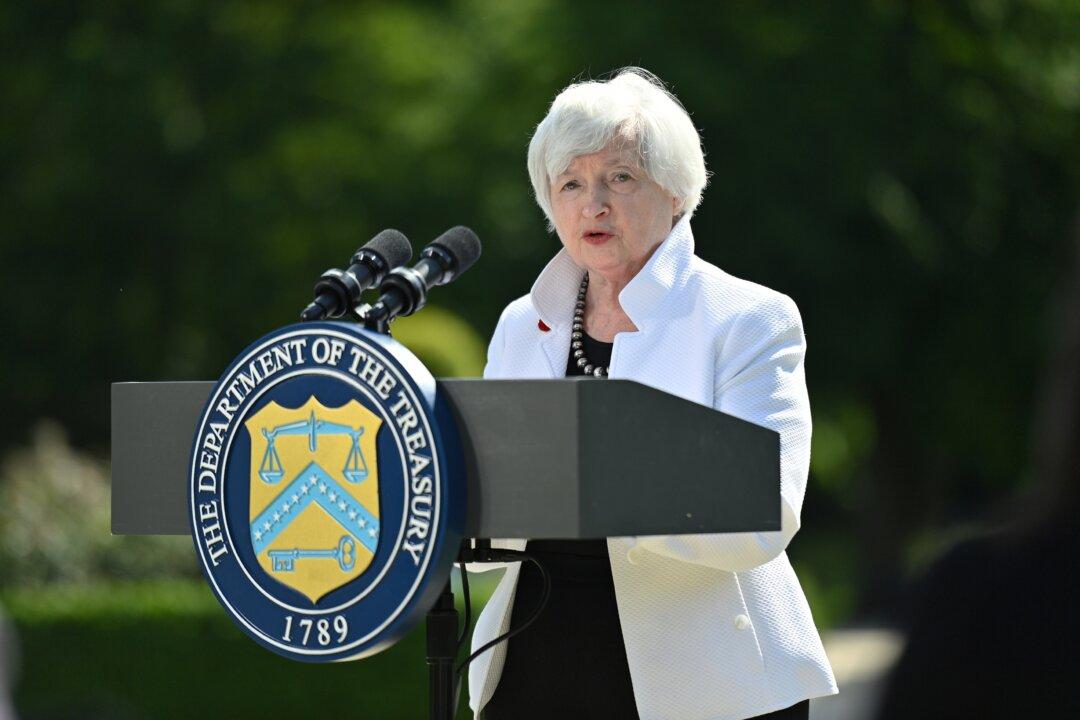Treasury Secretary Janet Yellen says the trillions of dollars in President Joe Biden’s new spending proposals would be good for the United States, even if they push inflation higher and lead the Federal Reserve to raise interest rates.
“If we ended up with a slightly higher interest rate environment it would actually be a plus for society’s point of view and the Fed’s point of view,” Yellen said in a June 6 interview on Bloomberg.





